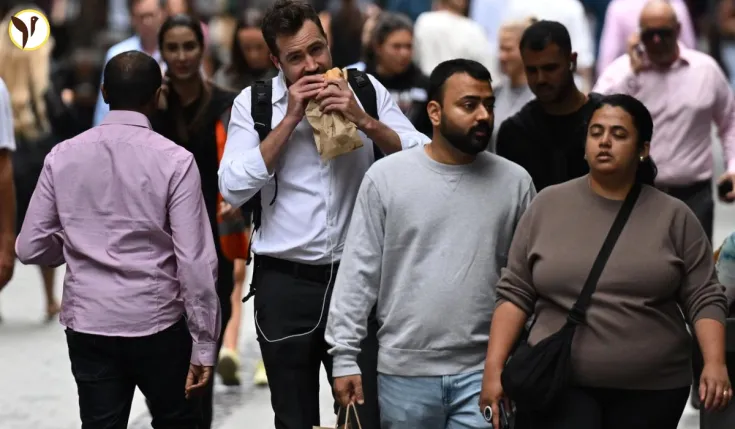A Legionnaires' disease outbreak in Sydney's CBD has hospitalized six people. NSW Health urges anyone with symptoms after recent CBD visits to seek immediate medical attention. The source is under investigation.
A Scary Surprise in Sydney's CBD
Six people. Six cases of Legionnaires' disease. All hospitalized. All with seemingly no connection to each other. Honestly, who saw that coming? It all started with an urgent health alert blasting across Sydney’s central business district. A potentially fatal form of pneumonia was spreading, and NSW Health was urging everyone who'd been in the CBD in the last ten days to watch out for symptoms. It felt a bit like watching a slow-motion train wreck unfold.
What is Legionnaires' Disease, Anyway?
It's caused by Legionella bacteria, usually lurking in water sources. Think cooling towers, for example – those massive things on top of buildings. The bacteria get into the air as tiny water droplets, and if you breathe them in, you can get sick. The scary thing? It's not contagious. You can’t catch it from someone else who has it. Symptoms – fever, chills, that awful cough, and shortness of breath – can pop up as long as ten days after exposure. It hits the elderly, smokers, and people with lung problems especially hard.
The Great Sydney Mystery
So, NSW Health is on the case, trying to figure out where this outbreak came from. Vicky Sheppeard, director of the South-Eastern Sydney Local Health District Public Health Unit, confirmed all six patients had been in the Sydney CBD around the same time. They're meticulously checking the maintenance records of every cooling tower in the area, working with the City of Sydney to inspect every possible culprit. It’s a massive undertaking, and they haven't ruled out the possibility that these cases are completely unrelated. It’s a puzzle, and everyone is anxious for the solution.
What Should You Do?
If you were in the Sydney CBD in the past ten days and you start feeling feverish, shivery, or struggling to breathe, get to a doctor immediately. Early treatment is key. If it’s not an emergency, you can call healthdirect on 1800 022 222. And a big reminder to building owners: keep those cooling towers properly maintained! It’s not just a matter of avoiding bad press, it's about public safety.
It's Happened Before, and it Could Happen Again
This isn't the first time Australia's dealt with a Legionnaires' disease outbreak. There have been others, some even resulting in fatalities. It really underlines how important regular maintenance is. You know, preventative measures aren’t just some government buzzword – they’re literally about saving lives. The mortality rate for this disease can be as high as 10%, so it’s nothing to mess around with. People most at risk include the elderly, smokers, and those with respiratory issues.
Staying Safe and Informed
NSW Health is keeping a close eye on the situation and will share updates as they get them. The best thing we can all do is stay informed through official channels and look out for each other. Early detection really does make all the difference. Remember, if you suspect you might have Legionnaires’ disease, seek medical attention immediately. It’s better to be safe than sorry, especially with something this serious.
FAQ
Legionnaires' disease is a severe form of pneumonia caused by bacteria found in water sources. It's spread through inhaling contaminated water droplets, not person-to-person. Symptoms include fever, cough, shortness of breath, and muscle aches.
The exact location of the Legionnaires' disease outbreak in Sydney's CBD is currently under investigation by NSW Health. More information will be released as it becomes available.
If you've recently visited Sydney's CBD and are experiencing symptoms like fever, cough, or shortness of breath, seek immediate medical attention. Inform your doctor about your recent travel to the Sydney CBD.
Legionnaires' disease is treated with antibiotics. Early diagnosis and treatment are crucial for a positive outcome. If you suspect you have it, seek immediate medical care.
NSW Health is actively investigating the source of the outbreak and working to contain its spread. They are urging anyone with symptoms to seek medical attention and providing updates to the public as information becomes available.







